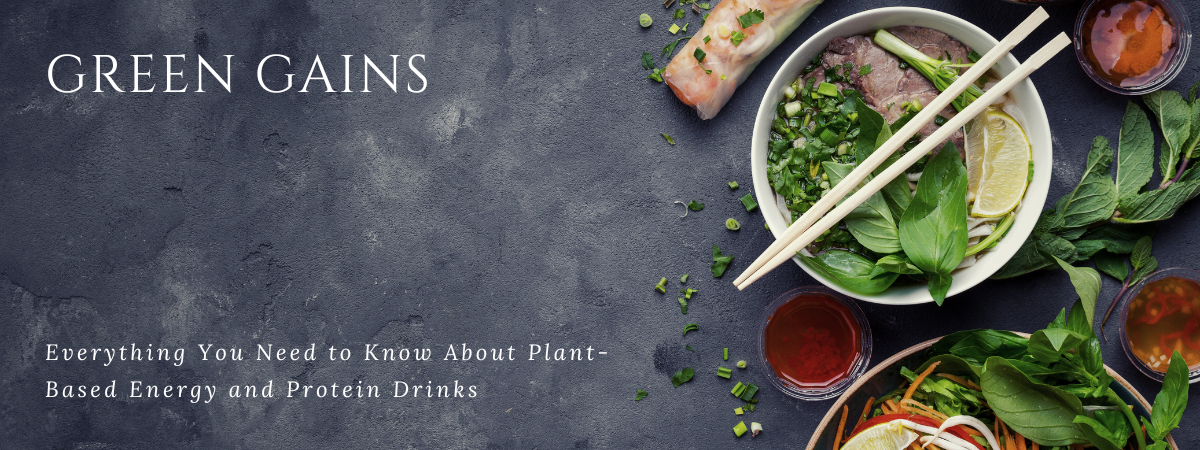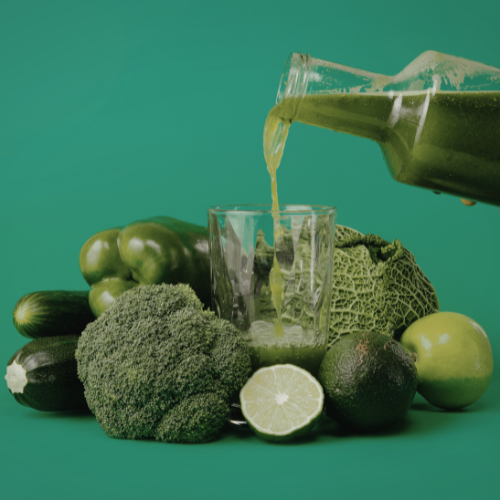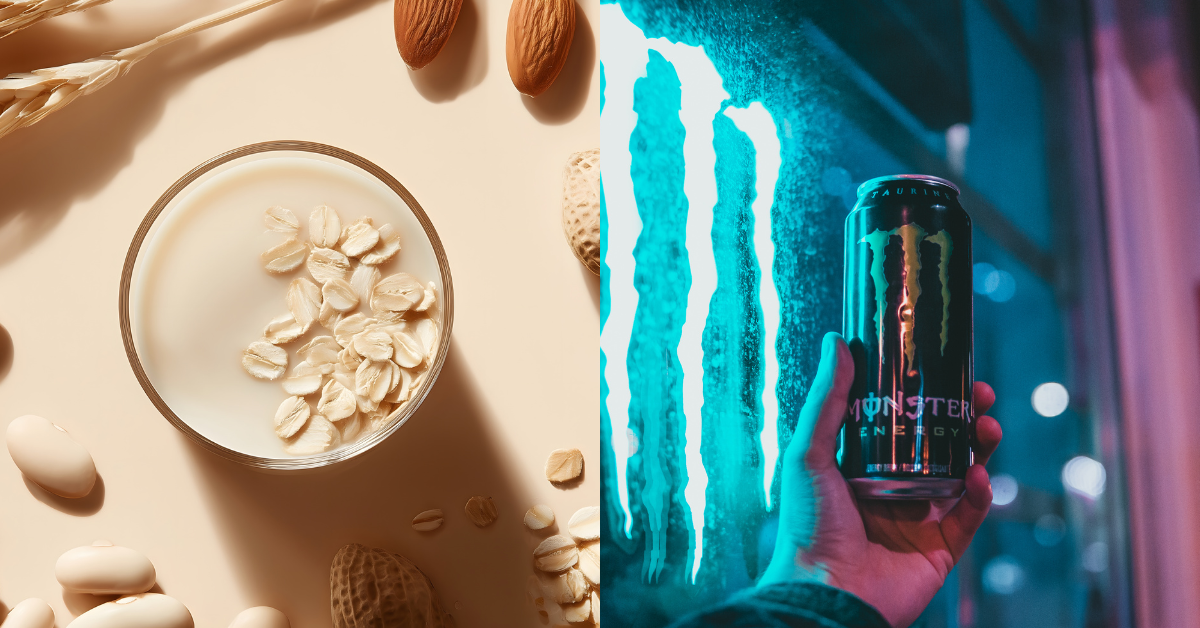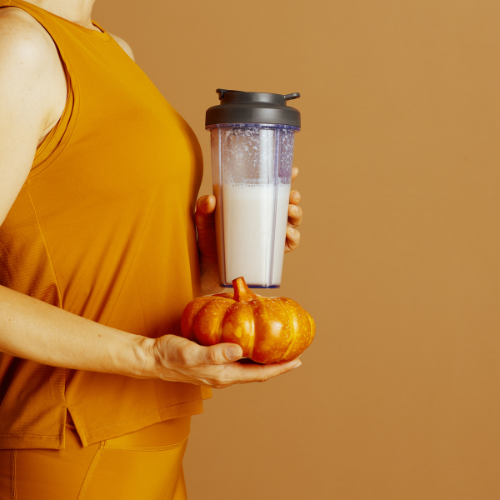
Gunja Parikh, MS, RDN, LDN
As more people embrace plant-based nutrition for health, sustainability, or ethical reasons, the demand for plant-based energy and protein drinks has surged. Whether you’re looking for a post-workout recovery shake, meal replacement, or natural energy boost, these beverages offer a wide range of benefits.
With so many options available, choosing the right one can be overwhelming. This guide covers everything you need to know — from key ingredients to nutritional benefits — so you can make an informed choice.
What Are Plant-Based Energy and Protein Drinks?
Plant-based energy and protein drinks are made from non-animal sources like peas, soy, rice, hemp, or nuts. They deliver essential macronutrients, vitamins, and minerals that support energy levels, muscle recovery, and overall wellness.
Unlike traditional dairy-based protein shakes or energy drinks loaded with artificial stimulants, these plant-based options focus on natural, whole-food ingredients.
Benefits of Plant-Based Energy and Protein Drinks

Sustainability
Plant-based drinks have a smaller environmental footprint than dairy alternatives. Producing plant proteins requires less water and emits fewer greenhouse gases, making them an eco-friendly nutrition choice.
Digestibility and Gut Health
Many people experience bloating or discomfort with dairy-based shakes due to lactose intolerance or sensitivities. Plant-based protein drinks are often easier to digest and may contain fiber and prebiotics that support gut health.
Heart Health
Proteins from peas and soy can help lower cholesterol and improve heart health compared to animal-based proteins. Many also include healthy fats from nuts, seeds, and avocados.
Balanced Nutrient Profile
Most plant-based protein drinks are fortified with key nutrients like vitamin B12, iron, and calcium — crucial for anyone following a vegetarian or vegan diet.
Stable Energy Levels
Unlike energy drinks that rely on excess caffeine and sugar, plant-based energy drinks often use natural sources such as matcha, green tea, yerba mate, or adaptogens like ashwagandha and maca for steady energy without a crash.


How to Choose the Right Plant-Based Drink
Selecting the right plant-based drink depends on your goals, preferences, and dietary needs.
Protein Source
- Pea Protein: Complete amino acid profile, highly digestible.
- Soy Protein: Full amino acid profile and well-studied for heart health.
- Hemp Protein: Includes omega-3 fatty acids and fiber.
- Rice or Pumpkin Seed Protein: Often blended for amino acid balance.
Sugar and Sweeteners
Choose options with low added sugar. Look for natural sweeteners like stevia, monk fruit, or dates over artificial ones.
Caffeine Content
If you want an energy lift, check for natural caffeine sources like green tea or matcha instead of synthetic caffeine.
Additives and Fillers
Skip drinks with artificial colors, flavors, or preservatives. Stick with clean, recognizable ingredients.
Allergens and Dietary Restrictions
Check for common allergens — many plant-based drinks are dairy-free, gluten-free, and soy-free. Always review labels for personal needs.

DIY Plant-Based Energy and Protein Drink
Green Power Smoothie
Ingredients:
- 1 cup unsweetened almond or oat milk
- 1 scoop pea or hemp protein powder
- 1 frozen banana
- 1 handful spinach or kale
- 1 tsp matcha powder (for energy)
- 1 tbsp almond butter
- ½ tsp cinnamon
- ½ cup ice
- Optional: 1 tsp chia or flaxseeds for extra fiber
Instructions: Blend until smooth. Enjoy as a pre- or post-workout drink or a midday energy boost.
Final Thoughts
Plant-based energy and protein drinks are a nutritious, sustainable alternative to animal-based options. Whether you buy a ready-to-drink option or make your own, focus on high-quality, clean ingredients to get the best results.
With the right choice, you can support your energy, recovery, and overall wellness — all while aligning with a plant-forward lifestyle.

Gunja Parikh
MS, RD, LDN
Gunja is a Licensed and Registered Dietitian with a passion for helping individuals improve their eating habits to reach their nutrition goals... READ MORE
References
Academy of Nutrition and Dietetics. (2023). Plant-Based Diets: Nutritional Considerations for Optimal Health. https://www.eatright.org
American Journal of Clinical Nutrition. (2021). Plant Protein and Cardiovascular Health. https://academic.oup.com/ajcn
Harvard T.H. Chan School of Public Health. (2022). Plant-Based Diets and Their Impact on Health and Environment. https://www.hsph.harvard.edu
National Institutes of Health. (2022). Protein Sources and Their Role in Muscle Recovery. https://www.ncbi.nlm.nih.gov
